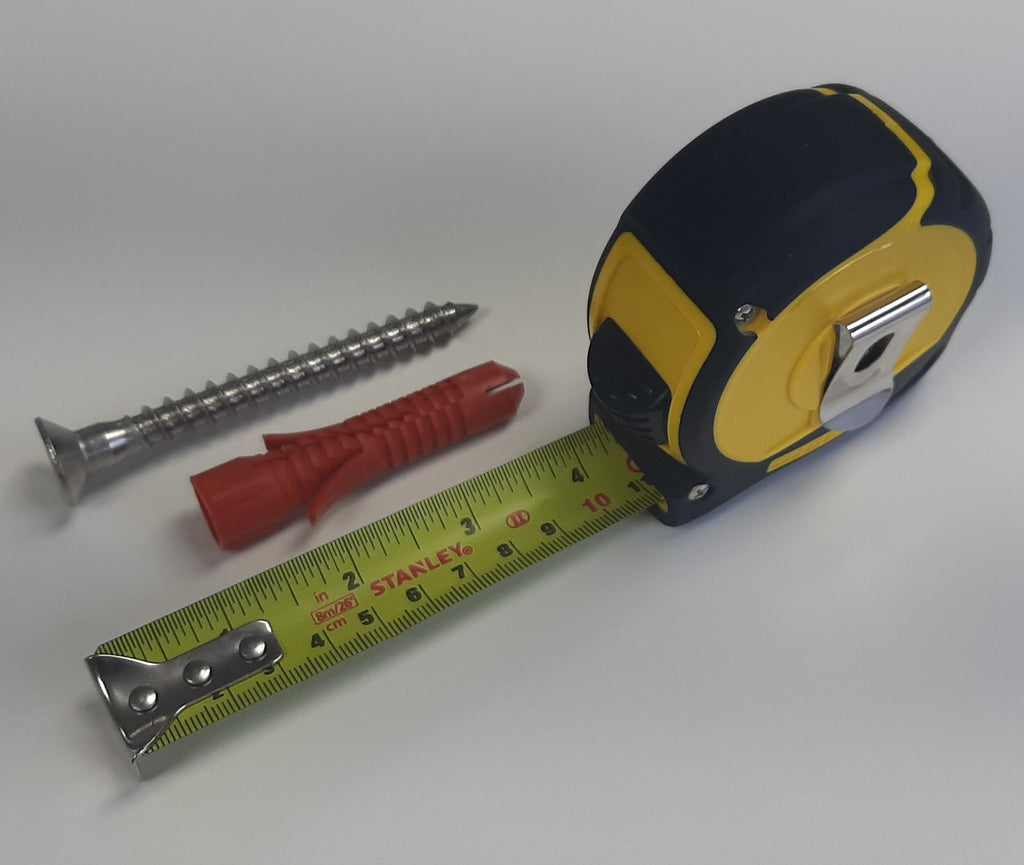How-to guide: reinforcing walls for grab rails or shower seats
Before fitting grab rails or shower seats, you must know what’s inside the walls you are attaching them to. Our grab rails and wall-mounted shower seats are designed to safely support up to 150kg, but only if they are affixed to suitable walls with the correct fixings.
If fitted incorrectly, you run the risk of the shower seat or grab rail coming away from the wall. Not only is this highly dangerous, it will also completely ruin your tiling.
Here are a few things you and your installer should be aware of when fitting shower seats and grab rails.
What is a suitable wall?
A solid brick or concrete wall is ideal for attaching supports. However, these are unlikely to form all four walls in a bathroom. More commonly bathrooms are created using partition or stud walls. These are usually made from timber or metal uprights (studs) attached to the floor joists. They are generally positioned about a foot apart and braced by noggins (small timbers placed horizontally between the studs). A thin plasterboard is then used to cover the studs and provide a surface to attach tiles or other wall coverings. Apart from some insulation (and sometimes not even this), there is absolutely nothing between the studs and noggings in a stud wall.
It is therefore essential that this type of wall is strengthened before attaching any kind of load bearing supports. If you are unsure what kind of walls you have and whether they require reinforcing, always seek professional advice.

A stud wall with ply lining, ready for plasterboard and tiles
What is proper reinforcement?
Wall reinforcement (otherwise known as pattressing or strengthening), means creating sufficient depth of solid wall to take relevant fixings. This is so the screws used to attach shower seats or grab rails to the wall have enough material to properly bite into. For grab rails this should be at least 22mm of plywood. For shower seats and cantilevered rails it needs to be a minimum of 35mm timber noggin plus 22mm plywood.

Wall reinforcement required for grab rails (top) and shower seats/hinged rails (below)
The way this is done is by adding more timber and plywood between the studs in all the places where your shower seat or grab rails will be attached.
Our designers are highly experienced in making sure supports are not only positioned in the best possible place to help you, but also where they can be securely mounted. Always ensure you are working with reputable installers who will undertake a full survey to understand your bathroom construction and ensure the compatibility of our design.

Reinforcement added for hinged grab rails either side of toilet cistern

Reinforcement added for shower seat and basin
The correct fixings
Just as important as the right wall reinforcement, is attaching the shower seat or grab rail using the correct fixings. All our grab rails and shower seats come with specific fixing kits so you can be sure these are compatible with the shower seat or grab rail you have chosen. These kits contain the exact size and style of screws for attaching them safely.
You may be surprised by just how large some of these screws are. However, the dimensions of these screws have been perfectly calculated to safely balance the opposite force acting upon them.

The screw and rawl plug required for a hinged grab rail or shower seat
Additionally, in a wetroom there will be tiles, adhesive, backerboard, plasterboard and waterproof tanking for the screws to travel through before hitting solid wall. Screws must be of sufficient length to reach through this material as well as into the required depth of timber or block wall.
Depending on the type of wall you may also require a rawl plug. If screwing into timber the thread of the screw bites in easily so a rawl plug is not required. However, with denser materials, such as brick or concrete blocks, a rawl plug is essential to provide extra bite.
Wall reinforcement and future-proofing
If you want to future-proof your home, one of the best things you can do is to make sure your walls are properly reinforced. It is very cheap and simple to do as part of a renovation, but can save a huge amount of hassle and cost down the line. This means that grab rails and shower seats can be added very simply without additional works, should you ever require extra support.
How we can help
If you have any questions about any of our shower seats or grab rails, please get in touch. Our team are always happy to offer technical support regarding the correct installation of our products.



